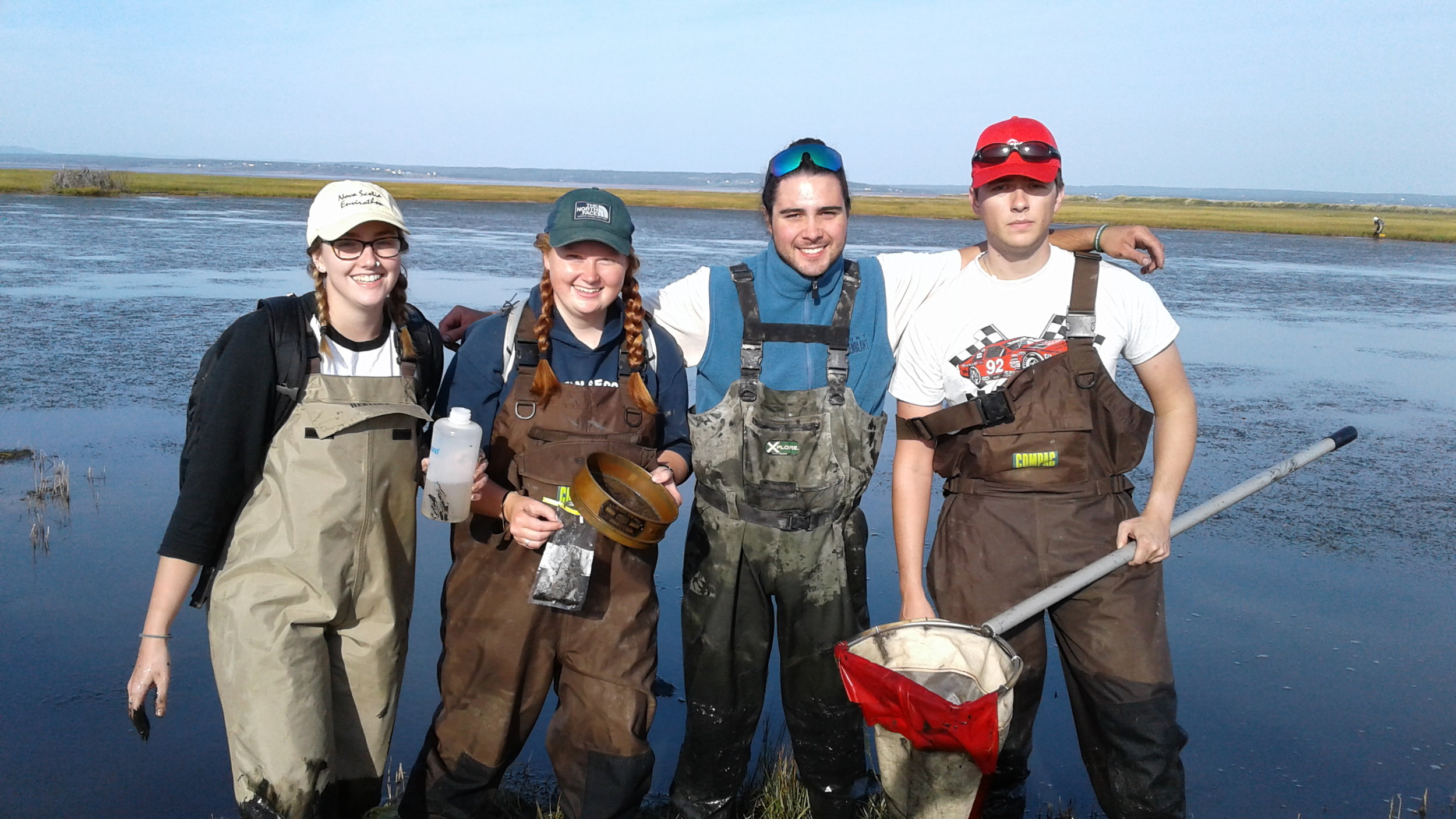PAST PROJECTS
Wetland Senescence
Natural wetlands provide many ecosystem services essential to wildlife and valued by humans. However, global declines in natural wetlands due to land-use change means that artificial wetland construction and restoration efforts are becoming increasingly important.
Our research partner, Ducks Unlimited Canada, monitors and manages many wetland ecosystems in the Cumberland Marsh Region (CMR), along the border of NB and NS, maritime Canada. Anecdotal observations by wetland mangers and some scientific study suggests that artificial wetlands in the CMR show signs of declining aquatic productivity several years after construction.
Strategic sampling of aquatic macroinvertebrates, combined with other environmental measures, will allow investigation of dozens of artificial wetlands believed to show recent productivity declines. Collaboration with our research partners will allow us to better understand senescence and developed monitoring techniques exportable to other wetland restoration initiatives in Atlantic Canada.
Early morning sunrise at several of the relatively new artificial wetlands created at Beaubassin, NB.
Typical artificial wetland within the Cumberland Marsh Region, maritime Canada.
Students eager to collect macroinvertebrates from artificial wetlands to compare invertebrate communities from young and old impoundments. This is a great example of where research and teaching intersect. Dr. Kurek now involves his GENS 4401 Biomonitoring Methods class in the study of wetland senescence, along with mentoring MSc students studying this topic as well.



